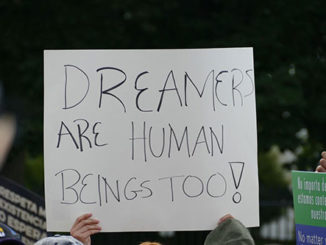By: Rev. David Wilson Rogers
Many years ago, a researcher placed some insects in an environment that was gradually made toxic. The transition took quite some time but, as one may predict, the insects in this increasingly toxic living space gradually became sluggish, sickly, and were clearly not healthy. Yet, they functioned reasonably well considering the high levels of toxicity to which they were exposed.
What was interesting about this experiment was that as new, and otherwise very healthy, insects were introduced to the environment, the sudden shock of the toxicity was instantly fatal. It led researchers to conclude that life has an amazing adaptive ability to adjust to gradual changes in toxicity which, when brought on suddenly, would be catastrophic.
A reasonable conclusion stemming from this research applies to the social, religious, and political environment in which people live. Generally speaking, most Americans would agree that our current cultural environment is highly toxic. Division and differences of opinion in America are nothing new. Democracy thrives in a diversity of thought, experience, and perspective. Yet, in modern times such diversity is seen not as healthy infusion of positive energy in the democratic culture, but rather a toxic cloud of hate, anger, and defensiveness that is polarizing the culture. Consider examples such as Black Lives Matter and Civil Rights.
One may say that Black Lives Matter is a powerful movement for equality while others will say that the whole concept of the movement is blatant racism and an affront to Law Enforcement. There are those who speak out against the concept of White Privilege and others who denounce the idea as a divisive and destructive belief. There are those who believe that the Civil Rights movement succeeded with the end of segregation and Jim Crow laws and others who believe that we live in a destructively racist society even today.
The problem is that when it comes to understand the complex and volatile issues of race in America, there is a lot of talk, but not a whole lot of understanding. Preachers and prophets speak out for and against Black Lives Matter, White Privilege, Affirmative Action, Civil Rights, and Economic injustice more than ever before in human history. Platforms such as the internet and modern media have given countless people the ability to campaign for or against beliefs regarding equality, justice, and racism. Yet, nothing is changing. The environment is toxic—so much so that it is probably capable of producing a massive cultural fatality if it were not for the fact that we have been living in the toxic soup for so many years.
While there are no simple solutions for Christians, nor are there any easy answers to the complex problems facing our society, there are pathways to peace and reconciliation that are largely being overlooked.
If those who profess a Christian Belief—and I would argue anyone who professes a religious belief of any sort although cannot authentically speak for any religion other than my own—we must move beyond polarizing labels, prejudicial assumptions, and critical presumptions. Rather, we need to start listening and learning from one another. This is the way we can rethink peace and do so from the foundation of a genuine Christian expression of faith. It is not about being right. Rather, it is about living righteously and that includes upholding the genuine humanity of all people, including those whom we do not fully understand.


